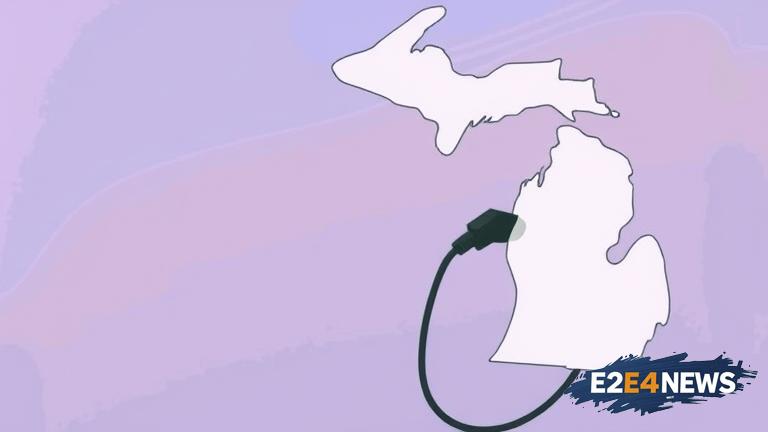Michigan has become the latest state to join a multi-state lawsuit against the federal government’s funding for electric vehicle chargers. The lawsuit, which was filed in July, challenges the Biden administration’s plan to allocate $7.5 billion in funding for EV chargers along highways and in rural areas. The states argue that the funding plan was developed without adequate consultation with state officials and fails to take into account the unique needs and challenges of rural areas. Michigan Attorney General Dana Nessel announced the state’s decision to join the lawsuit, citing concerns over the potential impact on rural communities and the lack of input from state officials in the development of the funding plan. The lawsuit alleges that the federal government’s plan violates the federal Highway Act and the Administrative Procedure Act. The states argue that the funding plan was developed in secret, without providing states with adequate notice or opportunity to comment. The lawsuit also claims that the funding plan fails to provide sufficient support for rural areas, where EV charging infrastructure is often limited. The states are seeking a court order to block the implementation of the funding plan and to require the federal government to develop a new plan that takes into account the needs and concerns of rural areas. The lawsuit has been filed in the US District Court for the District of Wyoming, and is being led by the state of Wyoming. Other states that have joined the lawsuit include Arizona, Kansas, Louisiana, Missouri, Montana, Nebraska, North Dakota, Oklahoma, South Carolina, Texas, Utah, and West Virginia. The lawsuit is the latest development in a growing controversy over the federal government’s efforts to promote the adoption of electric vehicles. The Biden administration has set a goal of having at least 50% of new car sales be electric by 2030, and has proposed a number of initiatives to support the development of EV charging infrastructure. However, the plan has been met with resistance from some states, which argue that it fails to take into account the unique needs and challenges of rural areas. The lawsuit is likely to be closely watched by state officials, industry leaders, and environmental groups, who are all interested in the development of EV charging infrastructure. The outcome of the lawsuit could have significant implications for the future of EV adoption in the US, and could potentially impact the development of EV charging infrastructure in rural areas. The federal government has defended its funding plan, arguing that it is necessary to support the development of EV charging infrastructure and to promote the adoption of electric vehicles. However, the states argue that the plan is flawed and that a new approach is needed to ensure that rural areas are not left behind. The lawsuit is a significant development in the ongoing debate over EV adoption and charging infrastructure, and is likely to be the subject of ongoing controversy and discussion in the coming months. The states are seeking a court order to block the implementation of the funding plan, which could potentially delay the development of EV charging infrastructure in rural areas. The lawsuit has been met with criticism from some environmental groups, which argue that it could undermine efforts to promote the adoption of electric vehicles and reduce greenhouse gas emissions. However, the states argue that their lawsuit is necessary to ensure that the needs and concerns of rural areas are taken into account, and that the development of EV charging infrastructure is done in a way that is fair and equitable. The outcome of the lawsuit will depend on the decision of the court, which will consider the arguments presented by the states and the federal government. The court’s decision could have significant implications for the future of EV adoption and charging infrastructure in the US, and could potentially impact the development of EV charging infrastructure in rural areas. The lawsuit is a reminder that the development of EV charging infrastructure is a complex and contentious issue, and that there are many different perspectives and interests at play. As the lawsuit moves forward, it will be important to consider the potential implications of the court’s decision, and to think carefully about how to promote the development of EV charging infrastructure in a way that is fair, equitable, and effective.





